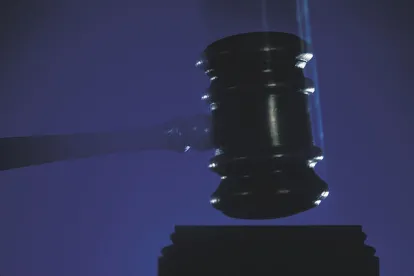The United States Supreme Court decided earlier this year that a 1957 opinion is still valid and still limits venue choices for patent infringement actions under 28 U.S.C. § 1400. See TC Heartland LLC v. Kraft Foods Group Brands LLC, 581 U.S. ___ (2017) (citing Fourco Glass Co. v. Transmirra Products Corp., 353 U.S. 222, 226 (1957)). In its extensively-covered TC Heartland decision issued in May, the Court held that “[a]s applied to domestic corporations, ‘reside[nce]’ in § 1400(b) refers only to the State of incorporation,” where the accused infringer has a “regular and established place of business” in the venue. While framed as merely confirmation of precedent from the 1950s, many practitioners and commentators viewed this decision as a dramatic change in the patent litigation landscape.
Since TC Heartland came down, lower courts have applied the new paradigm in differing ways. As trends have developed in recent months, we thought it useful to provide a sampling of the various approaches to venue issues post-TC Heartland. These issues include, for example, whether defendants who did not contest venue prior to the TC Heartland decision waived the defense of improper venue because the case was—or was not—an “intervening change” in the law, and how to assess whether a defendant has regular and established place of business in a particular venue.
As to the waiver issue, an Arizona district court recently allowed the defendant, Cree Incorporated, to amend its answer and transfer the case to North Carolina where Cree is incorporated. See OptoLum Incorporated v. Cree Incorporated, No. CV-16-03828-PHX-DLR, 2017 U.S. Dist. LEXIS 114717, at *12 (D. Ariz., July 24, 2017). The plaintiff, OptoLum Incorporated, argued that Cree waived its defense of improper venue because Cree omitted the defense in its answer to the complaint and its initial motion to dismiss. However, Cree argued that the defense of improper venue was not available to it before the TC Heartland case issued. The court agreed that Cree did not waive the venue defense because “TC Heartlandchanged the venue landscape… For the first time in 27 years, a defendant may argue credibly that venue is improper in a judicial district where it is subject to the court’s personal jurisdiction but where it is not incorporated and has no regular and established place of business.” Id. at *9-10 (quoting Westech Aerosol Corp. v. 3M Co., No. C17-5067-RBL, 2017 U.S. Dist. LEXIS 95768, 2017 WL 2671297, at *2 (W.D. Wash. June 21, 2017)). Further, the court rejected the opposite holding in at least eight recent cases from California and Texas (among other jurisdictions). SeeOptoLum, 2017 U.S. Dist. LEXIS 114717, at *5 (distinguishing Cobalt Boats, LLC v. Sea Ray Boats, Inc., No. 2:15cv21, 2017 U.S. Dist. LEXIS 90728, 2017 WL 2556679, at *3 (E.D. Va. June 7, 2017); Elbit Sys. Land & C4I Ltd. v. Hughes Network Sys., LLC, 2:15-CV-00037-RWS-RSP, 2017 U.S. Dist. LEXIS 94495, 2017 WL 2651618, at *20 (E.D. Tex. June 20, 2017); iLife Techs., Inc. v. Nintendo of Am., Inc., No. 3:13-cv-04987, 2017 U.S. Dist. LEXIS 98698, 2017 WL 2778006, at *5-7 (N.D. Tex. June 27, 2017); The Chamberlain Grp., Inc. v. Techtronic Indus. Co., No. 16-C-6097, 2017 U.S. Dist. LEXIS 107955 (N.D. Ill. June 28, 2017); Amax, Inc. v. ACCO Brands Corp., No. 16-10695-NMG, 2017 U.S. Dist. LEXIS 101127, 2017 WL 2818986, at *2-3 (D. Mass. June 29, 2017); Infogation Corp. v. HTC Corp., No. 16-cv-01902, 2017 U.S. Dist. LEXIS 103645, 2017 WL 2869717, at *4 (S.D. Cal. July 5, 2017); Navico, Inc. v. Garmin Int’l, Inc., No. 2:16-CV-190, 2017 U.S. Dist. LEXIS 106461, 2017 WL 2957882, at *2-3 (E.D. Tex. July 11, 2017); Reebok Int’l Ltd. v. TRB Acquisitions LLC, No. 3:16-cv-1618-SI, 2017 U.S. Dist. LEXIS 109576, 2017 WL 3016034, at *3 (D. Or. July 14, 2017)). The Arizona court concluded that TC Heartland was a “sea change” regarding venue in patent law and granted the transfer motion.
In an exemplary case going the other way, the defendant Brunswick Corp. filed a motion to transfer arguing that TC Heartland was intervening law and provided an exception to the waiver doctrine. See Cobalt Boats, LLC v. Sea Ray Boats, Inc. & Brunswick Corp., No. 2:15cv21, 2017 U.S. Dist. LEXIS 90728, at *1 (E.D. Va., Jun 7, 2017). The Eastern District of Virginia court disagreed and denied the motion. The court reasoned that Brunswick waived the argument by “failing to timely and sufficiently object” to venue until after the TC Heartland decision. The court further noted that the intervening law exception to waiver was not available because TC Heartland “merely affirms the viability of Fourco,” which has “continued to be binding law since it was decided in 1957, and thus, it has been available to every defendant since 1957.”
Beyond this rift on the question of waiver, Chief Judge Leonard Stark in the District of Delaware recently issued two interesting opinions on this issue. In one, he transferred the case due to improper venue and, in the other, he ordered further discovery to better inform the decision. Boston Scientific Corp. and Boston Scientific Scimed, Inc. v. Cook Group Inc. and Cook Medical LLC, C.A. No. 15-980-LPS-CJB (D. Del. Sept. 11, 2017); Bristol-Myers Squibb Co. and Pfizer Inc. v. Mylan Pharmaceuticals Inc., C.A. No. 17-379-LPS (D. Del. Sept. 11, 2017).
In Boston Scientific, the court concluded that a company must have a “regular and established place of business… through a permanent and continuous presence” in Delaware. Chief Judge Stark reasoned that venue is improper in when a company is only “registered to do business here, or only maintains a website that is accessible in Delaware, or simply ships goods to unaffiliated individuals or third-party entities here.” The court further reasoned that the defendant’s contacts did not amount to a regular and established place of business because it lacked physical facilities in Delaware, corporate offices or employees in Delaware, and its sales representatives did not live in Delaware. In Bristol-Myers Squibb, Chief Judge Stark ordered further discovery because he was unable to determine whether the defendant had a “regular and established place of business” in Delaware. He applied the same reasoning as in Boston Scientific regarding establishing a place of business in Delaware. Here, CJ Stark reasoned that defendant’s business model includes a large amount of litigation that is based in Delaware, which could count as a place of a business. However, he did note that defendant did not have a “regular and established place of business” in Delaware, and could not make a final decision until discovery is taken on defendant’s activities.
One of the first judges to articulate a test for analyzing the substance of a transfer motion under the new standard was Judge Rodney Gilstrap of the Eastern District of Texas. In denying a motion to transfer, Judge Gilstrap set out a four-factor test to determine a “place of business,” which include (1) physical presence, (2) defendant’s representations, (3) benefits received, and (4) targeted interactions with the district. See e.g., Raytheon Co. v. Cray, Inc., No. 2:15-CV-01554-JRG, 2017 U.S. Dist. LEXIS 100887 (E.D. TX, June 29, 2017). On September 25, 2017, the Federal Circuit reversed Judge Gilstrap’s decision. In re Cray, Inc., 2017-129 (Fed. Cir. 2017). We wrote about that decision in more detail here, in which the court articulated a new three-prong test for determining whether a defendant has a regular and established place of business in a particular jurisdiction:
-
a physical place, i.e., a physical, geographical location in the district from which the business of the defendant is carried out, such as a building or part of a building set apart;
-
the place of business must be “regular” and “established,” i.e., not transient or sporadic; and
-
the “regular” and “established” place of business must be that of the defendant, “not solely a place of the defendant’s employee.”
Although the Federal Circuit has not yet been asked to resolve the waiver question, practitioners now have its three-prong test for assessing venue. This provides much needed guidance on the selection of venue as a plaintiff, or whether to advance an improper venue defense and move to dismiss on this basis as a defendant.






 />i
/>i
